According to the Food and Agriculture Administration of the United Nations, “it’s estimated that if food waste were a country, it would be the third highest emitter of greenhouse gas.” Sounds scary, and it is. Luckily for the environment (and all of us), a number of brilliant minds have made it their mission to transform food waste into resources, creating high-quality fibres that can be used to produce furniture, clothes and accessories. Directly sourced from the fruit bowl, the snacks cabinet or the fridge, these natural fibres are changing the fashion industry for the better, making it greener and healthier for everyone.
Leaf No Trace
Circular Systems, a material science company, uses the leaves, stems and other waste from oil-seed flax, bananas, sugarcane, pineapples, rice and wheat straw that would otherwise be left to rot, and turns them into bio-fibres and yarn using low-cost, eco-friendly technology. The Agraloop bio-fibre process involves waste collection, wet processing, yarn spinning and fabric milling, finishing with a durable textile used for clothing and accessories. So far, it has been used by the likes of Nike, Converse, & Other Stories, COS, Madewell and many others. Besides its positive impact on the fashion industry, Agraloop’s circularity also creates organic fertilisers and organic paper packaging.
Time To Re-Wine
Did you know that for every glass of wine you drink, you’re helping create a pair of shoes? Well, sort of. Italian company VEGEA (VEG for ‘vegan’ + GEA for ‘Mother Earth’) uses waste from winemaking to produce a vegan-coated fabric as an alternative to traditional animal leather. Working with Italian wineries, they take grape skins, stalks and seeds leftover from the wine production process, and transform them into new materials used for furniture, packaging and fashion. And all of this without employing toxic solvents or substances. H&M, Le Coq Sportif and Mr. Porter are just a few of the big names in the fashion game that have used VEGEA for their own footwear collections.
View this post on Instagram
View this post on Instagram
Pretty In Pineapple
British manufacturer Ananas Anam creates a vegan, sustainably sourced alternative to animal leather and other synthetic materials: Piñatex®, a natural textile made from pineapple leaf fibre that is conventionally discarded during the harvesting process. Since the raw material is a by-product of the pineapple harvest, it requires no additional resources for its production, making it an even greener material than most in the industry. The process involves extracting the fibre from the discarded leaves, turning it into a non-woven mesh and applying a REACH-compliant coating to the end product, while using the leftovers as a natural fertiliser – making sure nothing is wasted. This natural fibre finds wide applications in fashion and furnishing, with big brands such as Hugo Boss, Sezane and Paul Smith having sourced it for their eco-friendly collections.
Fruitful Solutions
In a mission to build a sustainable accessory brand while solving the food waste problem, Allegorie uses two of the most wasted fruits – apples and mangoes – and transforms them into high-quality accessories. According to the USDA, 30% of apples and mangoes are tossed out globally each year during harvesting, transportation and consumption, due to defects, over-ripening or unacceptable appearance. Allegorie uses the discarded fruits, as well as scraps produced by the juice industry, to create the fabrics used in their bags, backpacks, cardholders and wallets. One single backpack, for example, is made of 80% fruit fibre from 550 apples, and a cardholder is made from 1.5 mangoes.
View this post on Instagram
View this post on Instagram
Chip Away At Climate Change
From fruits to root vegetables: you’d probably be surprised at the amount of waste created by a single bag of your favourite potato chips. Chips Board was founded by designers committed to creating bio-plastics that work as effectively as conventional plastic, but are made from potato waste – biodegradable, recyclable and using no toxic resins or chemicals. They’ve partnered with frozen potato products manufacturer McCain to turn the leftovers from the potato chip industry, like the starches and peels of potatoes, into a plastic-like material that can be used in furniture, eyewear and clothing.
Got Milk?
In the search for chemically untreated clothing, QMilk founder Anke Domaske found an innovative solution in a place most of us would never think of: the refrigerator. Now QMilk, along with other start-ups around the world such as Mi Terro, use a portion of the million tons of milk disposed of every year, and turn it into a milk polymer completely free of chemicals. The milk protein extraction is environmentally safe, and the result is a non-allergenic and antibacterial fabric that’s similar in feel to silk. As Domaske explains, the milk protein is extracted from dried milk powder and then heated, transforming the ingredient into strands that are then spun into yarn. While milk is of course a perishable product with an expiration date, the heating process prevents the protein from decomposing.
View this post on Instagram
View this post on Instagram
A Cuppa Slow (Fashion)
You can roast it, brew it, drink it… and wear it? That’s right, you can get more than a caffeine buzz from your morning cup of coffee. S.Café partners with local coffee shops in Taiwan to transform their used coffee grounds into raw material for clothing and linens. S.Café’s circular technology injects coffee grounds into the yarn and transforms it into a cotton-like fabric with more functional benefits than traditional cotton, such as odour control and UV protection, as well as fast-drying and -cooling effects. These features led them to create their own outdoor fabric brands such as Airnest, an innovative ‘bio-foam’, and sefia, a fabric made from the combination of coffee grounds and biodegradable wood pulp.
Just In Lime
Orange is the new green. At least, if you ask the team behind Orange Fiber. The Italian company has patented fabrics made from oranges, tangerines and limes discarded by juice companies, aiming at reducing food waste and giving leftovers a second life. By extracting the cellulose from the fruit and then combining it with wood pulp, they’re able to transform it into a luxury fabric – used, for instance, by Salvatore Ferragamo for their Ferragamo Orange Fiber Collection, and E. Marinella for their Centocinque ties collection.
View this post on Instagram
View this post on Instagram
A Kelping Hand
Besides serving as key ingredients in your sushi, seaweed and kelp are also paving the way for a cleaner fashion industry. Companies like AlgiKnit and Smart Fiber have developed marine-plant-based fibres from Icelandic fjords, eliminating the release of chemicals as waste, while producing yarns and fabrics that are completely biodegradable and carbon-neutral, mostly used for sportswear, underwear, loungewear and home textiles as they are soft, breathable and long-lasting. Brands like Frank and Oak have included these fibres in many of their basic collections.
Flax Facts
A great source of fibre, in every sense of the word, flax is one of the oldest cultivated plants in the world, going back 30,000 years. It’s also one of the OG natural fibres, still commonly used today to make one of the world’s most popular fabrics: linen. Ideal in hot climates for its ability to breathe, absorb water and repel heat, linen is made by pulling flax plants from the ground, removing the plant stock and seeds from the fibres, and then spinning the fibres into yarn. What makes linen – and therefore flax – a good option for a healthier, greener fashion business is its low water consumption (60% less water use than cotton), its high rate of carbon absorption and its biodegradable properties.
View this post on Instagram
View this post on Instagram





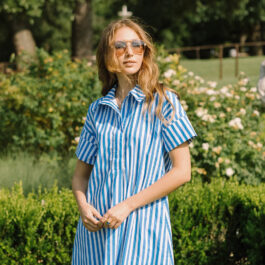

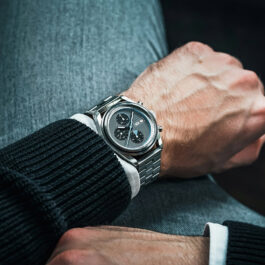

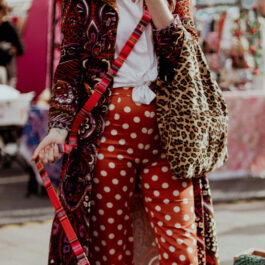
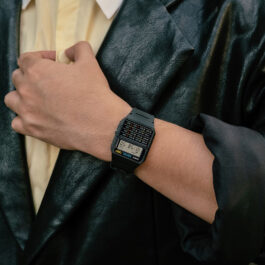
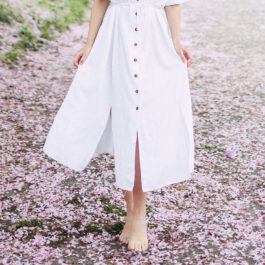
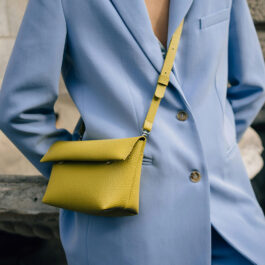
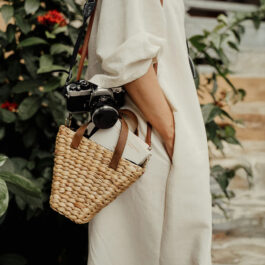
Sorry, the comment form is closed at this time.